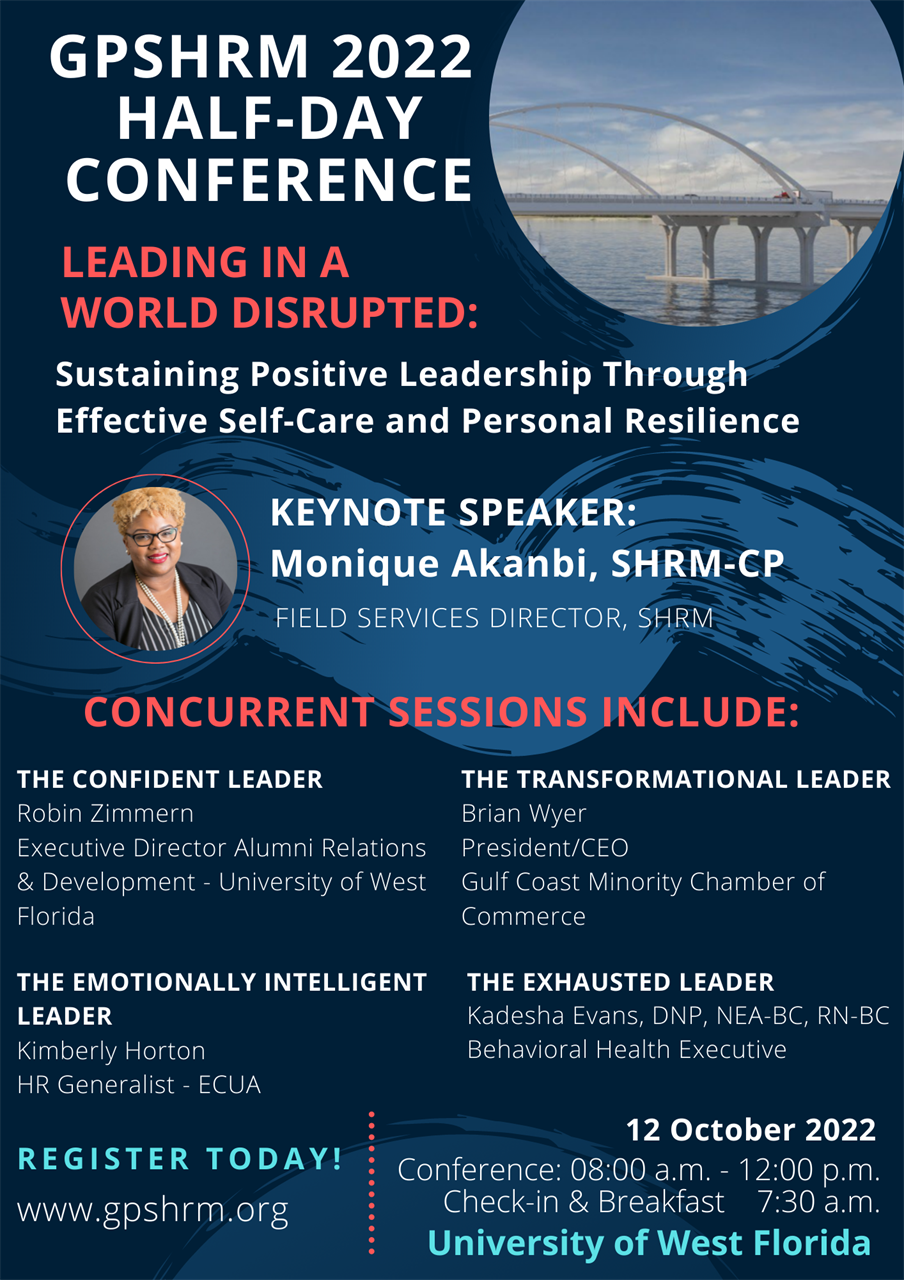
Keynote/Opening Session:
Who's Taking Care of the Care Taker?
Monique Akanbi, SHRM-CP - Filed Services Director, SHRM
HR spends so much time taking care of the organization and others, they often forget to care for themselves. They are stretched, exhausted, and simply trying to keep it all together. HR professionals act as first responders, heroes, and front line support to employees who face professional and personal disruption. We will examine the role of care taker, and discuss ways employers can support them and ways in which they can make self-care a priority.
Concurrent Sessions:
The Exhausted Leader
Kadesha Evans, DNP, NEA-BC, RN-BC - Behavioral Health Executive
What should you do when, on a personal level, you are experiencing a loss of agency, determination, and energy? In this session we’ll focus on: Understanding the difference between urgency and importance; be compassionate while also driving employees to action by channeling their feelings of defiance, anger, and frustration. Change things up every single day with a focus on energizing your team.
The Confident Leader
Robin Zimmern - Executive Director Alumni Relations & Development, The University of West Florida
Confidence is the foundation of leadership. You can teach a leader many fundamentals of leadership. Yet, without that leader first believing in himself or herself, true leadership will exist only in title. In essence, the first sale must be to yourself. When people feel your confidence, they more willingly invest their time, energy and loyalty to ensure that you and your team are successful. We will discuss what you can do to boost your leadership confidence.
The Transformational Leader
Brian Wyer - President/CEO, Gulf Coast Minority Chamber of Commerce
Transformational leadership is defined as an approach that causes change in individuals and social systems. In its ideal form, it creates valuable and positive change in the followers with the end goal of developing followers into leaders. In this session, we’ll cover how to encourage, inspire and motivate employees to perform in ways that create meaningful change. The result is an engaged workforce empowered to innovate and help shape an organization's future success.
The Emotionally Intelligent Leader
Kimberly Horton – HR Generalist, ECUA
If you have worked with an emotionally intelligent leader, then you would have likely seen qualities that define this type of leadership. Emotionally intelligent leaders are aware of their impact on others. They are conscious of how their emotional state is highly influential on their team's decision-making, cognition and performance. In this session we’ll talk about developing the capacity to selectively generate emotions that energize teams and inspire confidence.
THIS PROGRAM HAS BEEN SUBMITTED FOR
RE-CERTIFICATION CREDITS THROUGH SHRM & HRCI.
Parking Registration: UWF Parking Registration - parking lot K
For a digital map of the campus Click Here or for a printable copy Click Here